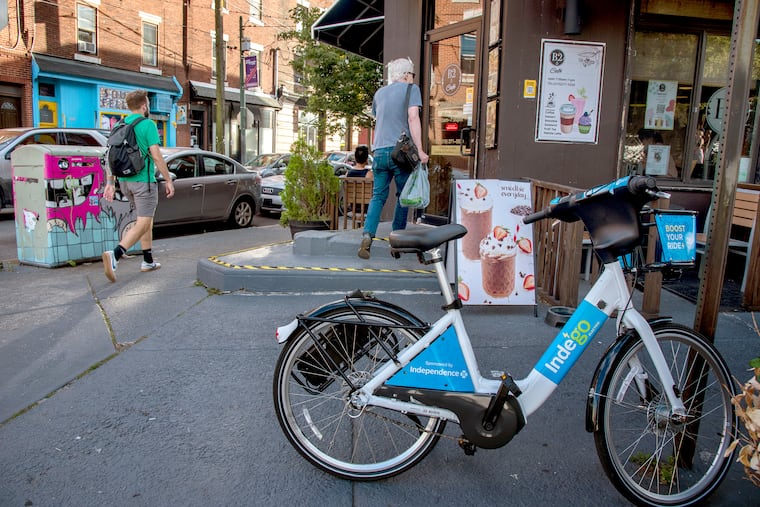Higher rents and ‘volatility’: Here’s what Philly small businesses should know about leasing
Commercial landlords like tenants that offer customers an experience "that you can’t just buy on Amazon," broker Kristie Bergey says.

According to a recent survey conducted by business networking platform Alignable, approximately 40% of the more than 7,300 small-business owners polled said they couldn’t pay their rent last month. Unfortunately, that number had grown by about 6% just since July.
Businesses surveyed cited a combination of factors including spikes in rent and higher costs of supplies and labor.
For landlords on the other side of the equation, they “feel like they let [rent] slide for a year and a half and did everything they could” during the pandemic, said Chuck Casto, Alignable’s head of research and communications, in an interview with CNBC last month. But landlords have mortgages and need tenants to pay, he said.
It’s certainly an ominous sign. Is the same rent crisis hurting small businesses in the Philadelphia area? I spoke to two commercial real estate agents in the city who both represent hundreds of small businesses and merchants. Both agreed there’s been a lot of volatility in their markets, with some small businesses being forced out of their locations as a result.
“One dry cleaner I know in Lower Merion got kicked out of her property recently because they couldn’t pay their rent,” says Damon Michels, a Realtor with Keller Williams who specializes in residential and commercial properties both on the Main Line and in Center City.
Kristie Bergey, a broker and the owner of KB Experience, a real estate firm in Philadelphia, says that in Philadelphia many landlords would rather maintain a vacant space instead of having a long-term lease with a small merchant that may not make it in the end.
“The commercial real estate market is clearly slow in many parts of the Philadelphia region,” she says. “But it’s not as if landlords are giving breaks to their tenants,” she added. “They’d rather hold on to the properties and wait for the right tenant — like a well-known restaurateur or a chain — to make that commitment.”
Picky landlords
Bergey says that many of her clients prefer to lease their spaces to more “experience”-type establishments, like coffee shops, fitness centers, or restaurants.
“Landlords have become really picky about what kind of clients they are willing to take their chance especially after what has happened,” she says. “They want a tenant doing something that you can’t just buy on Amazon.”
It’s become much harder this year for a small business to rent commercial property — or even hold on to existing leases. Alignable’s survey found that as many as 45% of small-business owners say they’re paying at least 50% more in rent than they did prior to COVID-19, with 24% reporting a doubling in their rent charged by landlords and 12% saying they’re paying over three times more now than before the pandemic.
Unfortunately, city government offers little help to merchants facing these challenges. According a spokesperson from the Philadelphia Department of Commerce, the city does provide loans, education, coaching, marketing, and other services to assist businesses in acquiring commercial space. However, the department does not provide small businesses with funds specifically to cover or subsidize rent.
Strategies for leasing
So what’s the best strategy for a small business looking to control leasing costs in these days of slow economic growth and high inflation – and persuade a prospective landlord that they’re worth the risk?
For starters, both real estate agents say, it’s important to do your research so that you can really understand your customer base and pick the right location with the right demographics.
Also, be prepared to be fully transparent with your prospective landlord. Providing historical operating information, financial statements, and tax returns are common requests so the landlord can feel more comfortable that your business will be around for a while.
Be prepared to commit, too, as most landlords generally ask for leases with a minimum five-year term. You’ll want to have reasonable projections showing how you’ll be able to meet the requirements of a lease during that period.
Small businesses should also be ready to negotiate the sharing of any potential construction or retrofitting costs, which are always on the table as part of any deal. And if a lease is granted, make sure you’re giving yourself enough time to arrange your permits and other clearances with local authorities. That way you can time your lease to begin around when those clearances should be received.
All of these tactics will prepare you to get the best commercial lease possible. But according to both Bergey and Michels, there’s an even better tactic if you can afford it: buy.
“Sure, rates are al little higher now, but if you lock yourself into a mortgage, you still know what your monthly payment is going to be and it’s not going to change,” says Michels. “When you buy you’re more in control of your costs and you can potentially benefit from the appreciation of the property.”
Bergey agrees. “You’re always better off being your own landlord,” she says.